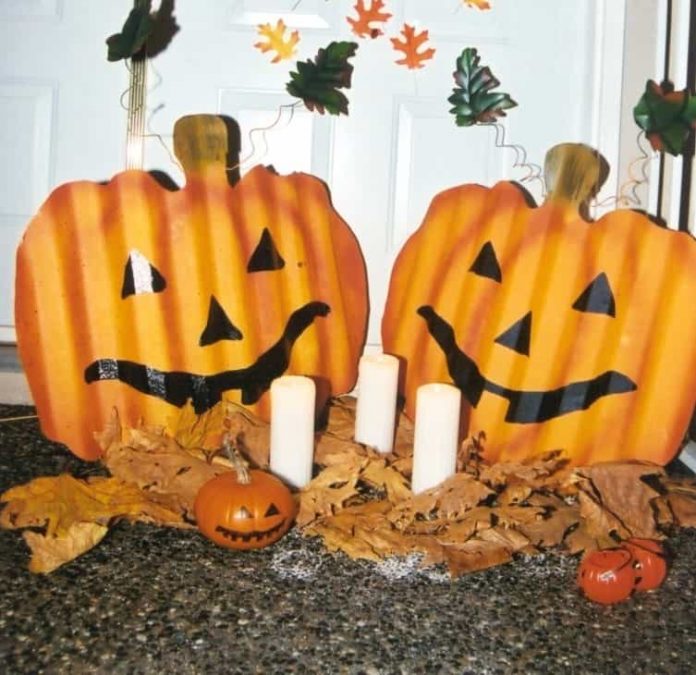DURING the Halloween season it is important to keep your child’s safety in mind when planning costumes, decorations, treats and activities, says Health Canada. Make sure that Halloween is a safe and happy experience for the whole family by preparing ahead of time.
Choose the right costume
Ensure that your children are dressed appropriately for Halloween.
- Look for costumes and accessories such as beards, wigs, wings and tails that are labelled flame-resistant. Flowing skirts and capes, baggy sleeves and over-sized costumes can all be hazards around candles or flames.
- Nylon or heavyweight polyester costumes are best. Remember, flame-resistant does not mean fire-proof.
- Pick brightly coloured costumes that can be clearly seen by motorists. Add reflective tape to the costume to increase visibility.
- Use make-up or face paint instead of masks – improperly fitted masks can interfere with your child’s vision or breathing.
- Before using face paint or make-up, do a patch test to see if your child is sensitive or allergic to something in the cosmetic. Even products labelled as “hypoallergenic” can still cause allergic reactions.
- If you do choose a mask, make sure it fits properly and allows them to see and breathe easily.
- Do not use contact lenses that change eye colour or create special effects because they can cause injury to a child’s eyes.
- Avoid costumes that are too big or have long dangling pieces that children can trip over.
- Ensure that toy weapons and similar accessories are made of soft or flexible material. Hard or rigid costume accessories can cause accidents.
- Choose costumes that fit well and can be worn over warm clothing to protect your child against cold and wet weather.
Avoid danger when decorating
Stay vigilant for fire hazards and prevent injuries while getting into the spirit of Halloween.
- To avoid injuries, let children draw a face or design on the pumpkin and then have an adult carve it.
- Candles, jack-o-lanterns, lighters and matches are all fire hazards. Place lighted candles and jack-o-lanterns away from curtains and other flammable objects, and do not leave them unattended. Instead of candles, consider using a small flashlight or battery candle to light your jack-o-lantern.
- Keep candles, matches, lighters and other fire hazards in a place that children cannot reach.
- Avoid using Halloween candles with multiple wicks. They can produce a large flame with intense heat that can ignite nearby materials like curtains and window sills.
- Check indoor and outdoor decorative lights for broken or cracked sockets, frayed or bare wires or loose connections. Do not overload extension cords.
- Make sure the lights are certified by a recognized organization like the Canadian Standards Association (CSA) or the Underwriters’ Laboratory of Canada (ULC).
Did you know?
It is important to make your home safe for little ghouls and goblins. Remove objects around the outside of your house that could cause children to trip or fall. Turn on your outdoor lights to increase visibility and let trick-or-treaters know they can visit.
Stay secure while trick or treating
Keep your children safe by teaching them to stay visible and to be aware of their surroundings.
- Go trick or treating with your children each year until they are old enough to go with a friend.
- Give each child a flashlight to carry, to make them more visible to motorists and others.
- Tell your children to stay in well-lit areas and only visit homes that have their outside lights turned on. Make sure they know never to go inside homes or cars.
- Teach your children to be careful when crossing the street. Make sure they look both ways and only cross when no cars are coming. Cross streets at the corner, and never cross between parked cars.
Be cautious with candy and toys
Always examine the treats and toys that are brought home before giving them to your children.
- Tell your children not to eat any treats until you have looked them over.
- Be careful when giving children any treats that could be potential choking hazards such as chewy candies, peanuts and hard candies.
- Check toys or novelty items for small parts and do not let children under three years of age play with them.











